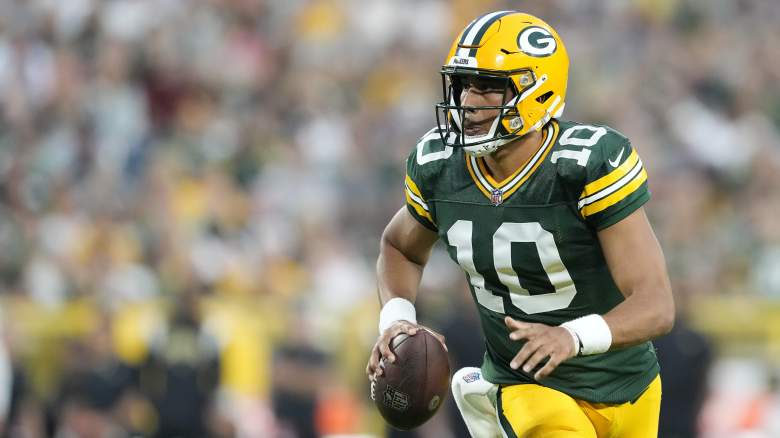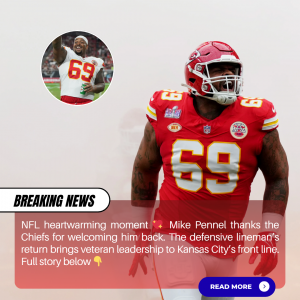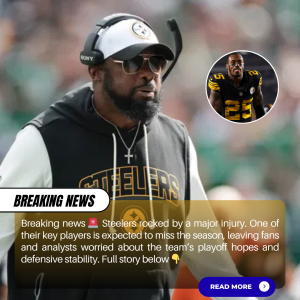GREEN BAY – Gunshots echoed off inner-city high rises, rattling vacant lots below. Jayden Reed never knew when he’d hear the next round. The sporadic violence speckling Chicago’s West Side followed no pattern, no purpose. A neighborhood set to detonate.
His father shielded him from the crime. Sabian Reed grew up on the same city block. He introduced his son to football early. He set the same curfew each night. Be inside before the streetlights turn on, he’d say. Jayden was insulated and loved, protected by sports and family.
The one thing Sabian couldn’t do was stop the violence outside his home.
“It was definitely a struggle,” Jayden says.
When he played Pop Warner, Jayden’s teammate died after accidently shooting himself. That’s when Dad started making plans to evacuate. A couple years later, Chicago police officer Jason Van Dyke shot 16 bullets into teenager Laquan McDonald. The officer was white. McDonald was black. The city was in an uproar.

Jayden was 14 when McDonald was killed. For Sabian, there was no turning back. He moved his family to Naperville, a suburb one hour west of downtown.
“His dad’s No. 1 goal,” Jayden’s mother, Kesha, says, “was to get his kids out of that environment. Because we both knew what that was like growing up in the city.”
Leaving Chicago was difficult. Kesha, raised on the South Side, still works as a program coordinator. She’s devoted her life to giving inner-city children a chance with theirs. “I love the city of Chicago,” she says. Their home was a family haven. One bedroom kept four cousins. Grandma lived across the street. An aunt lived down the road. They were huddled together, bunkered by proximity. Moving to Naperville meant leaving behind deep roots.
Sabian didn’t see any other choice. The move was a father’s greatest gift. “A different perspective,” Jayden says. You can draw a line between the decision and his ascension to the Green Bay Packers, where he’s a starting slot receiver as a rookie, returning Sunday to Chicago for his first NFL game. In Naperville, Jayden saw greater possibilities existed outside Chicago’s city limits. Life was more than gun violence and death. The move provided everything the Reeds had hoped.
Until the day Sabian checked into a hospital and never came home.
‘I wanted to give up’
If not for Dad, Jayden might never have played football. He was a basketball player first, a guard with a slick handle and speed to take defenders to the rim. In time, he would develop the 33⅟₂-inch vertical to dunk over anyone. There was one problem. “I can’t shoot,” Jayden says. “I was never a shooter.” Dad saw that broken jump shot, but also the athleticism.
He grabbed a football and started tossing spirals.
“It all started in the front yard,” Jayden says.
A youth football coach drove down their street one day while father and son played catch and pulled his car over. Jayden was invited to join a Pop Warner team in Chicago. He played every position, even punt returner. The first time Jayden fielded a punt, Kesha watched her son zig and zag his way to the end zone. “No one could tackle him,” Kesha says. “He ran circles around the defenders.” Jayden finished his first game with six – yes, six – touchdowns.

“We were in awe,” Kesha says. “Like, he can play football. He’d always played basketball. It was that moment I realized football came naturally to him.”
Sabian followed his son’s football career closely. Biggest fan, but also his most honest critic. If Jayden slacked on the field, Dad let him know. “He was dad-slash-coach,” Kesha says. His critiques weren’t limited to Jayden. Sabian was once kicked out of his son’s basketball game, arguing with an official over a blown call.
Jayden would bristle at his father’s blunt truths. Then his father’s voice went silent, and he didn’t know how to cope.
Coursing through Sabian’s veins, blood flowed like a battering ram. He was diagnosed with hypertension at 29 years old. His body was resilient, adjusting and compensating as it regulated. For six years, high blood pressure became his norm, lulling him into a false sense of security.
Then his kidneys started to fail. The stress took a toll on his heart.
“We were young,” Kesha says. “So just being uneducated about it, and not really putting the focus on doing what he needed to do medically, ended up affecting organs.”
Sabian was a vibrant personality. There was plenty of life ahead of him, if he could just receive a new kidney. Doctors placed him on a transplant list. Sabian refused to allow his children and wife to be tested as a possible match, not wanting them to endure what he had, confident he’d find the top of that list.
His health kept deteriorating as he waited. Into his 30s, Sabian did daily dialysis treatments. Regular maintenance wasn’t enough.
On a late-summer Saturday in 2015, Sabian dropped off his oldest son at football practice. He stopped at Dunkin’ Donuts on the way to his mother’s house, ordering his favorite breakfast. After a few hours, he left to take Jayden to a teammate’s birthday party. It was, Kesha says, a typical day for her husband. He ensured the household operated smoothly while she worked two jobs, supporting his treatments.
The birthday party became a sleepover. When Sabian returned to pick up his son, he asked if Jayden wanted to come home.
“I ended up saying, ‘No,’” Jayden says. “Unfortunately.”
Jayden woke up the next morning to learn his father’s health cratered overnight. In a rush, Kesha drove her husband to the hospital. Sabian never checked out. His death certificate listed kidney failure and heart attack.

Jayden was 15 years old when his father died. He struggled grappling with his grief. For months, life was put on hold.
“I don’t know how I got through it, really,” Jayden says. “I wanted to give up. I didn’t want to play football anymore. I didn’t want to do sports. I didn’t want to do school. I struggled in school.”
Jayden played football as much for his father’s enjoyment as his own. A few months after his father’s death, Jayden remembered what made Dad happy. He clung to that joy, determined to live life honoring his father’s memory.
It meant sticking with football. Rededicating himself in the classroom. Seizing the future his father left him.
“That was really my motivator,” Jayden says. “Because that’s what he was most happy seeing me doing. He never missed a game. He was the loudest in the stands. That was my motivator, just always knowing he was there, and that’s what made him happy. He loved it, and that made me love it more. He probably loved it more than I did. So that’s what took me to this level of loving this game so much.”
Jayden finished high school taking three summer courses, avoiding a detour to junior college. The other freshmen in Jayden’s signing class at Western Michigan arrived on campus in June, weeks before their first fall camp. Jayden didn’t report until Aug. 3.
Three days after camp began.
‘You would just call them Gumby’
His first college football practice, Reed was fourth string on Western Michigan’s receiver depth chart. He weighed 175 pounds. His lack of size limited him to the slot, where a senior blocked his path to the field, taking most of the reps.
The Broncos already had installed the early foundation of their offense. “He was way behind,” former Western Michigan coach Tim Lester says. Lester hoped Reed could have a niche role that season. A few reverses, some jail-break screens, a small sampling of plays to take advantage of his speed.
“Our goal,” Lester says, “was, ‘Can we get him to learn fast enough?’”
Lester envisioned building his offense around Reed eventually. For years, the coach heard rumors of the young receiver’s athleticism, exploits that sounded more like tall tales, the kind that are amplified across the country on fall Friday nights. Reed’s high school quarterback and longtime best friend was Payton Thorne, a junior starter this season at Auburn. Thorne’s father, Jeff, was head football coach at North Central College and one of Lester’s closest friends.
Each week, Jeff Thorne shared the details of his son’s early football career with his friend and fellow coach. Lester couldn’t help but notice the same receiver was attached to each highlight. “He really couldn’t tell the story about Payton Thorne,” Lester says, “without saying what Jayden did in the game.” Lester decided he needed to see for himself. He made the 3-hour drive from Kalamazoo, Michigan, to the Chicago suburbs for a game during Reed’s junior season, sitting in the stands to unravel myth from reality.
Lester quickly saw Reed’s potential was real. He could outrun any defensive back lined up across him, separating himself from coverage. “Extremely quick twitch,” the coach jotted in a notepad. Reed never waited for the football. He attacked each pass, naturally transitioning into a playmaker after the catch. Lester soon offered a scholarship.
He just had to get Reed on campus.
“It was hard to get him eligible,” Lester says. “We worked our tail off, and he worked his tail off, to get him eligible. So the question mark really still surrounding him was, how fast could he pick it up? I think his first semester at Western Michigan, he got like a 3.5 GPA. We realized quickly he is really smart. We weren’t sure at the time, because if you would look at his (high school) GPA, it wasn’t the greatest in the world. Mainly because that 6-month timeframe around his dad’s passing, it crushed his grades. So we had to just make up for it.”
Before he died, Sabian Reed equipped his son with the necessary framework for a football career. Father and son learned the game together, watching tape of NFL receivers. Nobody was analyzed more than longtime Packers receiver Randall Cobb. “My dad loved Randall Cobb,” Reed says. Both are undersized, but lightning quick in the slot. Both play with a chip on their shoulder, an outsized toughness.
Reed had a blueprint. He still needed a chance.
It came two weeks into his first fall camp. Lester already was scrambling to find ways for Reed to get on the field, despite the seniority in front of him. He’d seen greatness at the Mid-American Conference level before. In 2005, Lester was an assistant at Western Michigan, coaching quarterbacks in an offense designed around future Packers receiver Greg Jennings. When he watched Reed, Lester recognized Jennings’ ability to run routes at full speed, the way he changed directions without slowing down. His body control, how he contorted in the air without losing momentum, reminded him of the receiver who would earn two Pro Bowl selections. “Those guys,” Lester says, “you would just call them Gumby. Their bodies would bend in ways that are unique.” Reed was another Gumby. He was still stuck on the fourth string.
Then an injury to Western Michigan’s senior slot receiver allowed Reed to get more reps. He won the starting job in camp and never looked back.
“When that guy got hurt,” Lester says, “it was like, ‘Listen guys, he’s our best athlete out there. I know he’s 18, but let’s force feed him and see if he can handle it.’ And he had zero issues handling it.”

Reed caught seven passes for 121 yards and a touchdown in Western Michigan’s first game, a trip to Syracuse. Two weeks later, he returned a punt 93 yards for a touchdown against Delaware State. It was the second-longest punt return in school history. Reed had seven catches, 101 yards and a 40-yard touchdown one week later against Georgia State.
Then Reed planted himself on college football’s national radar in late September, catching seven passes for 137 yards and four touchdowns at Miami University in Ohio. His four touchdowns tied Jennings’ single-game school record. He was dominant, treating the MAC like Pop Warner.
By season’s end, Reed was ready for a bigger stage. He led Western Michigan with 56 catches, 797 yards and eight touchdowns, selected freshman All-American. Late that season, Payton Thorne flipped his commitment from Western Michigan to Michigan State, where he began his college career before transferring to Auburn.
Reed entered the transfer portal, a difficult decision that disappointed Lester, but didn’t surprise him.
“I kind of just used it as an opportunity to prove I was able to compete at that level,” Reed says. “It was just me living out my dreams more, playing in front of 72,000, 75,000. Just getting that feeling of seeing what that was like.”
After committing to Michigan State, Reed sat out 2019 because of NCAA transfer rules. He returned to the field one year later wanting to assert himself in the Big Ten.
It didn’t take long for Reed to be the Spartans’ best receiver.
‘He is a flat-out dog’
Courtney Hawkins still remembers the first practice. First time Michigan State’s receivers coach saw Reed on the field, he gasped at the speed. Reed needed something more. An edge to separate himself in one of college football’s most competitive conferences.
Hawkins was a former receiver with similar dimensions, standing 5-foot-9, 183 pounds when the Tampa Bay Buccaneers drafted him in the second round in 1992. He didn’t spend nine seasons in the NFL, splitting time with the Buccaneers and Pittsburgh Steelers, simply because he could run. Hawkins mastered the receiver position like a technician. He had a bevy of trade secrets.
With Reed, Hawkins was determined to instill what a decade in the league taught him.
“We needed to harp on fundamental route running,” Hawkins says, “and get him to realize that you can’t just depend on your speed and quickness. You’ve got to be fundamentally sound to be able to get in and out of breaks. Sometimes you’re going to have to be able to play physical. Because you are going to run up against guys who are as quick and as fast as you, and you’ve got to be sound from a fundamental standpoint.”
Reed was an insatiable student, Hawkins says. They spent hours on the phone, discussing what made a great receiver, carrying their conversations onto the practice field. “He would ask good questions,” Hawkins says. The queries often revolved around Hawkins’ playing career, how he got open as a receiver who didn’t tower over the secondary.
First, Hawkins had to teach Reed to thrive on college football’s biggest stage. In the NFL, defensive backs can’t touch receivers downfield. Deep routes morph into brawls in the Big Ten. “It’s not like Sundays,” Hawkins says. “The back end in the Big Ten can be a little rough, a little handsy.” Reed could beat defenders off the line of scrimmage with his feet, releasing horizontally.





